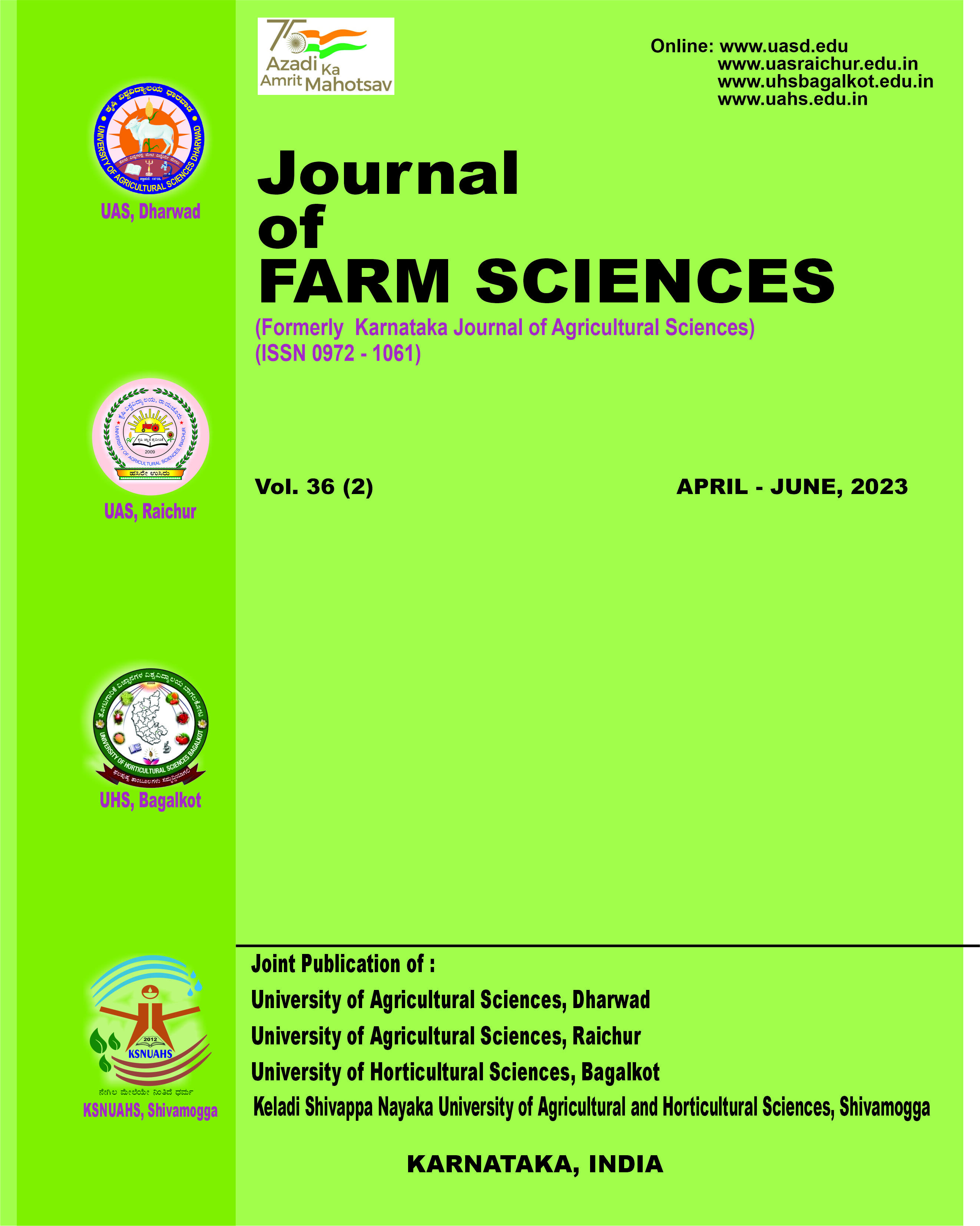Productivity enhancement of mustard through integrated nutrient management practices
Keywords:
Azospirillum, Net returns, Seed yield, Vermicompost
Abstract
A field experiment was conducted during rabi season of 2019-20 at UAS, Dharwad to study the effect ofintegrated nutrient management on growth, yield, quality and nutrient uptake in mustard under Northern Transition Zoneof Karnataka. The study comprised of three doses of fertilizers (100, 75 and 50% RDF) and two different organic manures(Farm yard manure and vermicompost) with three bioinoculants (Azospirillum, PSB and Pink Pigmented FacultativeMethylobacteria) and these combinations were compared with control. The treatments were replicated thrice usingrandomized block design. The results of the study revealed that, application of 100% RDF + FYM @ 5 t ha-1 +Azospirillum @ 4 ml kg-1 seed + PSB @ 4 ml kg-1 seed + PPFM @ 1% recorded higher growth, yield attributes and increasedthe seed yield by 77.21% over control. Like wise, higher oil content (36.40%), oil yield (569 kg ha-1), uptake of N, P and K(93.32, 33.81 and 81.13 kg ha-1,respectively), net return ( 40870 ha-1) and B:C ratio (2.39) were also recorded with thesame treatment. Application of 100 % RDF + FYM @ 5 t ha-1 + Azospirillum @ 4 ml kg-1 seed + PSB @ 4 ml kg-1 seedrecorded 69.16 % higher seed yield and additional net returns of 20217 ha-1 was noticed over no fertilizers ( 17703 ha-1).
Published
2021-09-20
How to Cite
ANNAPOORNA, P., & CHANDRANATH, H. (2021). Productivity enhancement of mustard through integrated nutrient management practices. Journal of Farm Sciences, 34(03), 255-259. https://doi.org/10.61475/jfm.v34i03.318
Section
Research Article
Copyright (c) 2021 Journal of Farm Sciences

This work is licensed under a Creative Commons Attribution-NonCommercial-NoDerivatives 4.0 International License.


